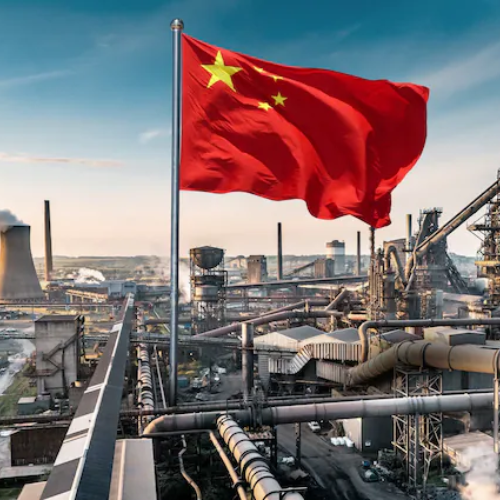China has been quietly increasing its hold on some of the UK’s most valuable companies. According to recent research, Chinese investors now own close to £90 billion worth of shares in Britain’s top businesses. This is a big jump—about 40% more—compared to December 2022, when the figure stood at £64 billion.
These shares are held by investors from Hong Kong and mainland China, including China’s central bank and government-run investment funds. They’ve bought into many companies that are part of the FTSE 100, a group that includes the 100 most valuable companies listed on the London Stock Exchange.
Altogether, Chinese stakes now make up around 5% of the total value of the FTSE 100, which is worth about £2.1 trillion. These investments mean that a good chunk of British business profits is now flowing back to China every year in the form of shareholder payments, also known as dividends.
Strategic Companies Under Foreign Eyes
What makes this more concerning is the type of companies China is investing in. Many of them are critical to the UK’s safety, infrastructure, and energy needs.
China’s Historic Dump of $53 Billion US Treasuries is Unprecedented Blow to US Economy
One of these is BAE Systems, a major defence company involved in the UK’s nuclear protection program. Chinese investors also own shares in Rolls-Royce and Babcock—two companies that play key roles in supporting the UK’s military. Rolls-Royce produces jet engines used in military aircraft, while Babcock is involved in maintaining warships and armored vehicles.
Although China doesn’t have full control over these companies, the fact that it owns shares in them is enough to raise eyebrows. The UK government still holds “golden shares” in some of these firms. That means it can block any attempt to take them over fully. But the presence of Chinese money in such key businesses is enough to worry many people.
The People’s Bank of China, which is China’s central bank, holds £2.4 billion worth of shares in oil giant Shell and an additional £1 billion in pharmaceutical firm AstraZeneca. Another Chinese investment group, China Investment Corporation, holds shares in a wide range of companies, from airlines like easyJet to banks like Barclays and water companies like Severn Trent.
China also has hundreds of millions of pounds invested in National Grid, the company that powers homes and businesses across the UK. Another Chinese fund owns parts of GlaxoSmithKline, SSE, and mining company Rio Tinto.
China’s ‘Spy Base’ Embassy: A Threat to UK’s Vital Communication Lines
These companies are responsible for vital services—keeping the lights on, powering hospitals, producing medicines, and making sure water flows from taps. Having a foreign power with significant ownership stakes in such sectors is raising serious concerns.
Beyond the Stock Market
China’s involvement doesn’t stop at buying shares. It also owns large parts of British infrastructure. For example, China Investment Corporation owns 10% of Heathrow Airport. Heathrow was recently given the green light to build a new runway.
China also holds nearly one-third of the Hinkley Point C nuclear power plant project in Somerset. This is one of the UK’s biggest energy projects and plays a crucial role in meeting the country’s future electricity needs.
On top of that, a company controlled by a billionaire based in Hong Kong owns a major stake in Northumbrian Water, which supplies water to the North East of England. This same group also owns UK Power Networks, another important part of the UK’s energy system.
Blockbuster Ban! China’s Vicious Retaliation Sends Shockwaves Through Hollywood
These investments show how deeply China is now connected to the UK’s economy—not just through company shares but also through physical infrastructure.
Critics are warning that too much foreign ownership, especially from a country like China, could pose risks. While the UK has rules to protect certain companies from full takeovers, many are questioning whether current protections go far enough.
Chinese money now has a strong presence in many corners of British life—from the planes we fly in and the medicine we take to the energy that powers our homes. All of this raises serious questions about who really holds the power behind the scenes.



